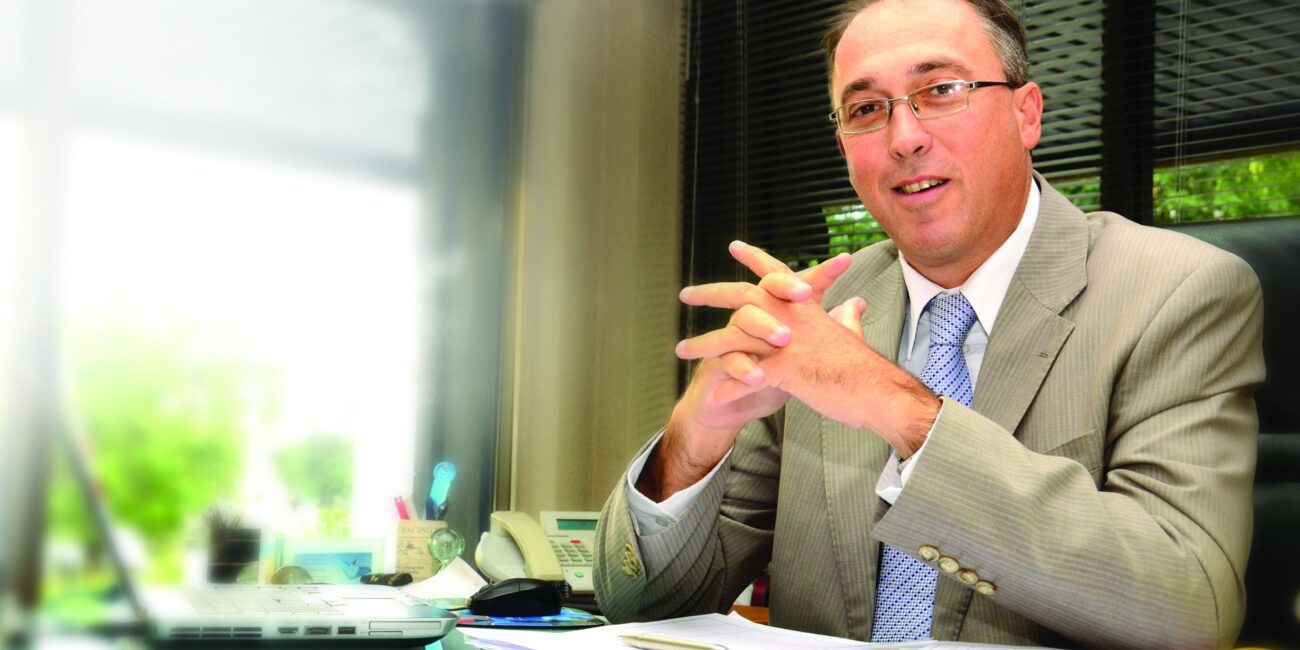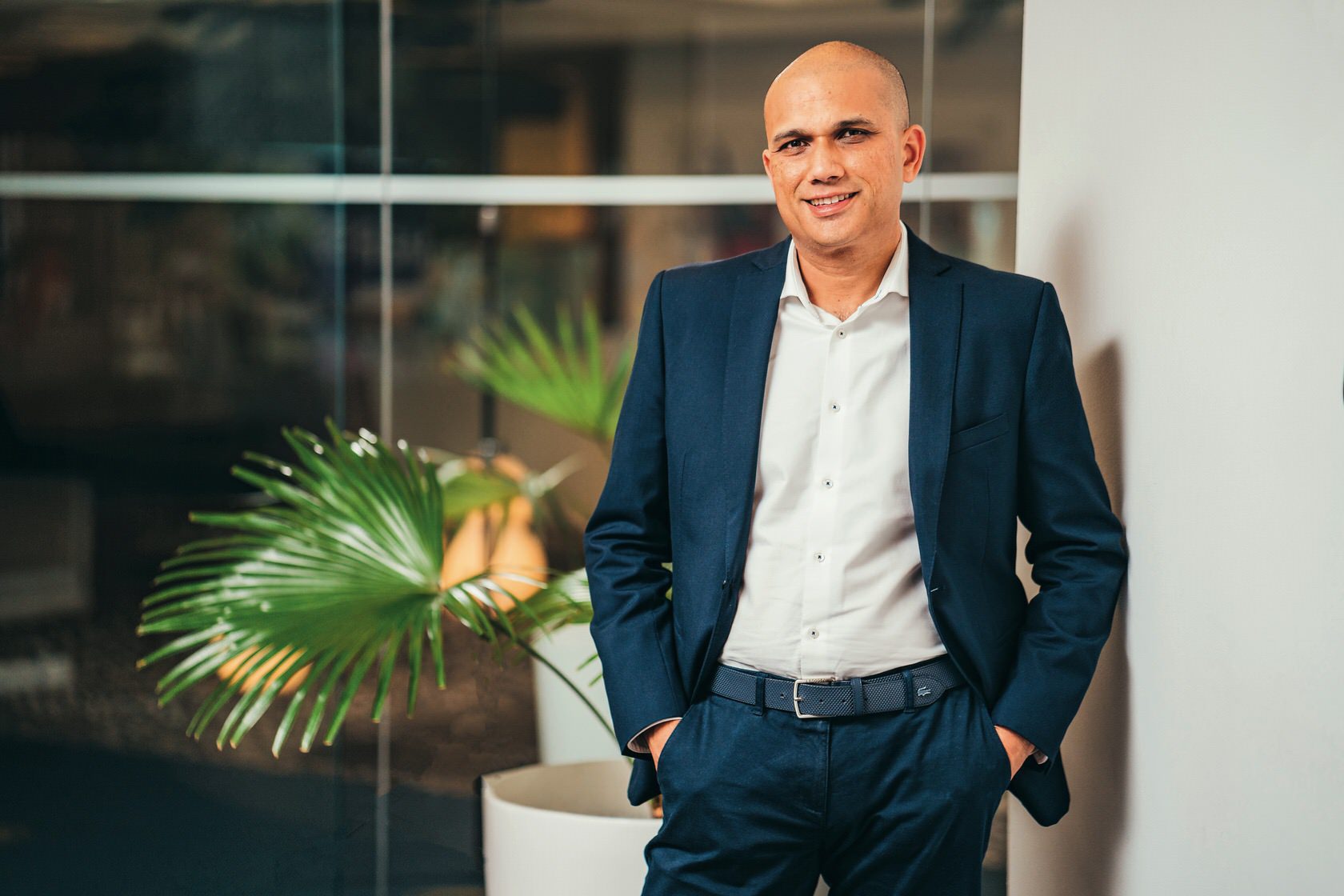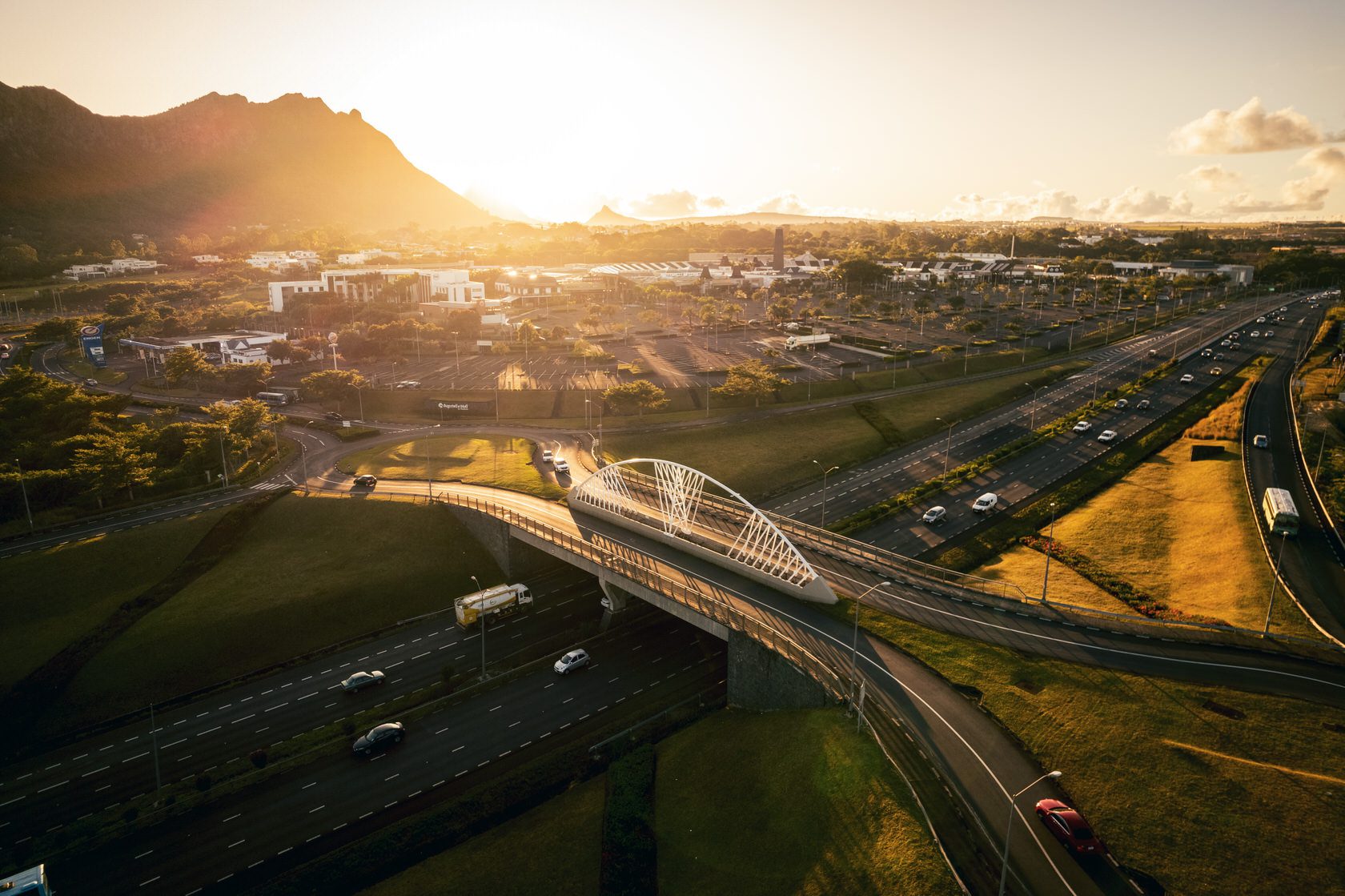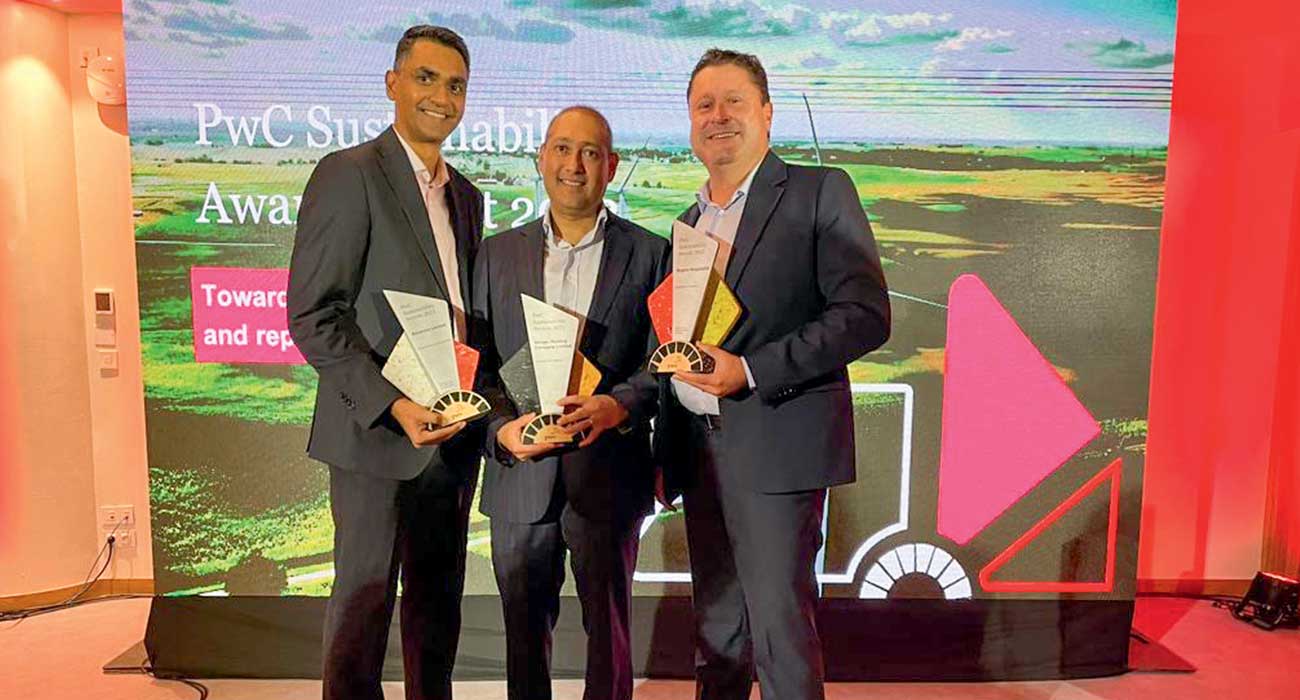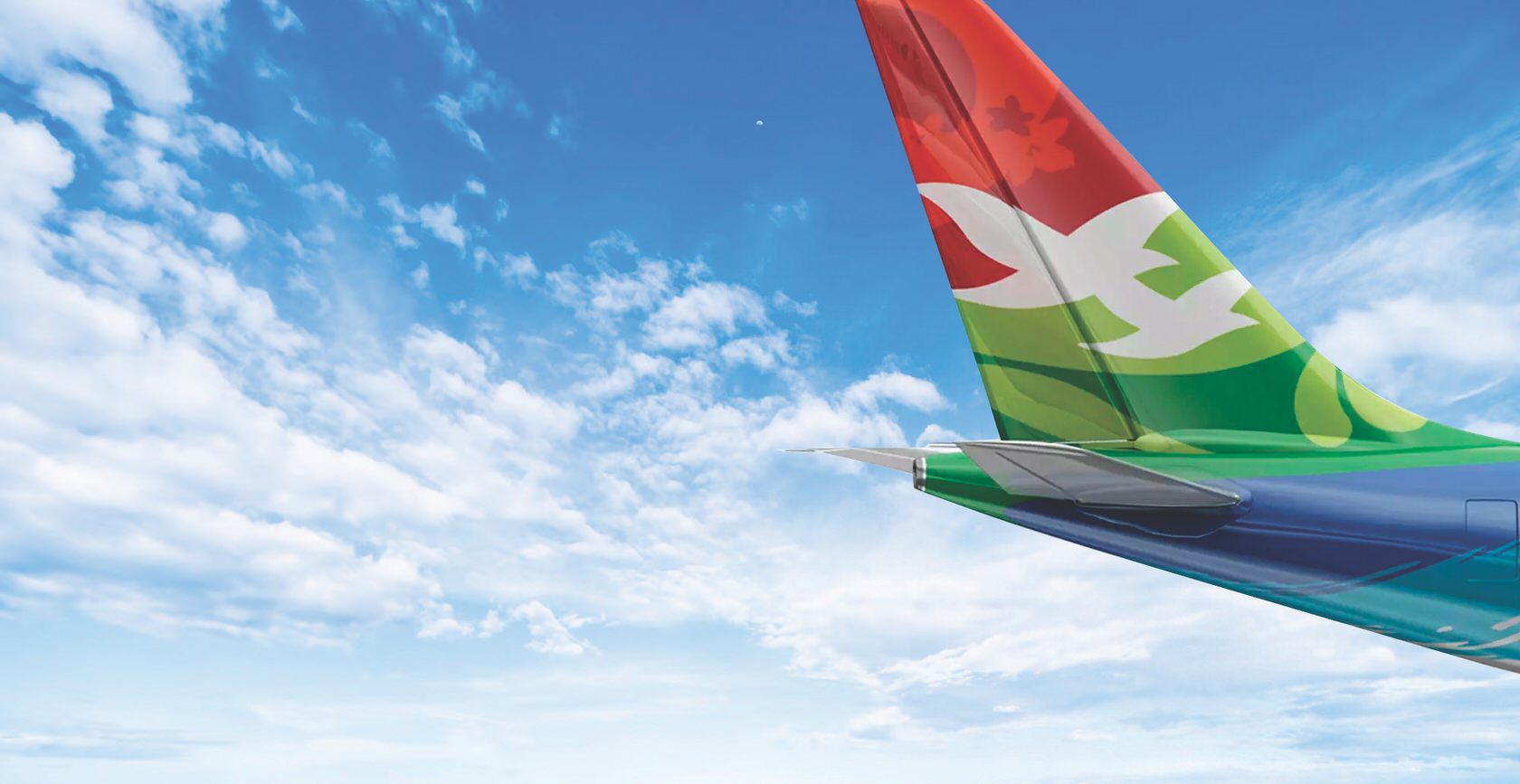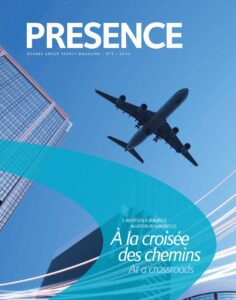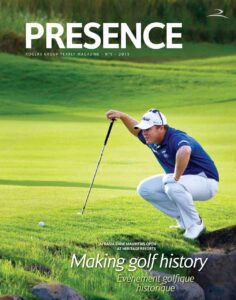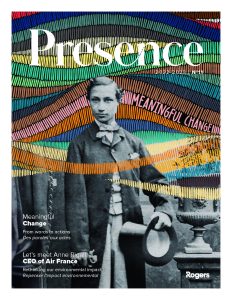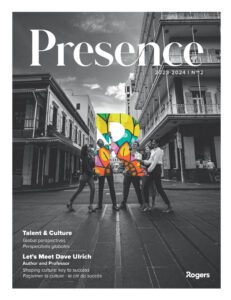A pioneer in the aviation industry for close on 70 years, Rogers has transformed itself over the years into a total solutions provider for Mauritius and the region. Alexandre Fayd’herbe, the CEO of Rogers Aviation, explains how the company has managed to adapt to meet the challenges the sector faces.
Alexandre Fayd’herbe, ceo - Rogers Aviation /// photos : manoj nawoor
What is your take on the development of commercial aviation since Rogers’ first involvement in the sector in 1945?
Aviation is clearly the sector which has seen the most spectacular development in recent decades. It is often tied in with national pride. It has enabled people to fly but above all, this sector, created to support economic development, has seen many changes throughout the value chain, whether in the type of aircraft, airport facilities and technology or in the number and profile of passengers, as well as in sales techniques and methods.
Some planes have left their mark on a period. The Boeing 747, for example, was able to handle a higher passenger load and fly further. There was also the supersonic Concorde and nowadays the Airbus A380. Some countries have been able to take on a new regional importance thanks to the aviation industry, as in the case of Dubai airport. It can currently handle 75 million passengers whereas, just a few years back, even the largest airports could only handle some ten million.
In Mauritius too the evolution has been spectacular since that first Air France flight in 1945, when the company was known as Réseau des lignes aériennes françaises and took a week and fourteen stops to fly from Mauritius to Paris. Air Mauritius came into being in 1967. It started with a Piper Navajo and moved on to the Twin Otter and then the ATR and the Airbus, with greater passenger capacity and a larger reach. We went from stopping flights to direct flights, enabling the country to welcome more and more tourists and allowing Mauritians to explore the economic development opportunities global reach offers.
The number of airlines flying here and flight frequency also increased. Some companies were replaced by others, such as BOAC which merged with BEA to form British Airways. Others, like Qantas and Virgin Atlantic, came – and went again, whilst others, like Air France and South African Airways, have maintained a constant presence.
The small Plaisance Airport will soon be replaced by a new terminal, able to accommodate up to 4.5 million passengers a year. Once upon a time, the whole village turned out when someone took a flight. Nowadays, some people leave home in the morning, travel to Reunion Island and return the same day.
Rogers has been involved in the sector’s development throughout. Having started out as the general sales agent for Air France in 1945, it represented all the airline companies that landed in Mauritius for their passenger, freight and airport activities, right up to initiating the creation of the national carrier.
In all this, there’s a quotation I particularly like, “Yesterday’s solutions will not solve tomorrow’s challenges.” This is a sector that is continually evolving and which will continue to evolve.
Knowing that the Mauritian market is relatively limited, do you intend to carry on the regional expansion begun some twenty years back?
Thanks to the experience gained over the years in the aviation business, our predecessors did indeed decide to expand Rogers Aviation’s activities into the region. The first step was into Madagascar in 1995, followed by Mozambique in 1998 and then Reunion Island, the Comoros, Mayotte, Kenya and South Africa.
Our incursion into Africa made us quickly realise that we could bring real added value to the continent in terms of know-how and experience. As part of our strategy, we have kept the continent as the focus of our expansion. Some years back, we were considered somewhat crazy, as China and India were seen as the economic drivers. Today, our then analysis of the market has been vindicated. Africa is booming significantly in economic terms and is attracting the interest of some of the largest multinationals. Its natural resources, as well as renewed political and social stability in a number of countries, have altered the situation. By 2030, it is forecast that there will be 250 million middle-income Africans, people thus able to afford to travel.
Some of our airline partners have shared with us their ambition to grow their networks over the next three years, so that they can fly to at least one city in each African country. The Gulf carriers are also interested in the continent and have begun to fly to some African countries, as Qatar Airways now does to Mozambique. For all these reasons, we are continuing to expand our activities within the region and will continue with our strategy as in the past, of supporting our partners’ growth strategies as effectively and in the most reliable ways possible.
There are two sides to our expansion plans. One is to extend our activities to new countries in Eastern and sub-Saharan Africa and the other is to offer new services in the countries where we are already present.
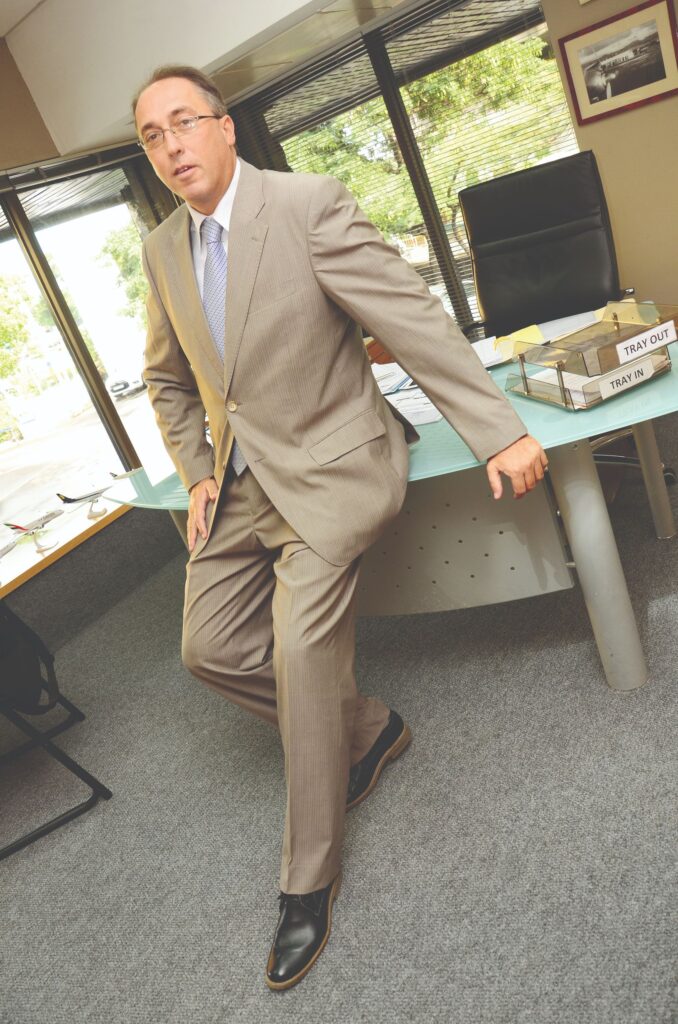
The aviation industry is going through a period of turbulence. How are you adapting to this?
Globally, the aviation industry has been going through difficult times for some years now, indeed ever since the dramatic events of 11 September 2001. Airlines and tour operators have frequently been loss-making. The situation has been made worse by higher fuel prices, exchange rate changes and the increasingly fierce competition legacy carriers have experienced from low-cost airlines on established routes.
This has led to mergers in recent years, notably of KLM and Air France in Europe and between several American carriers. Other mergers are in the pipeline. Airlines have been forced to consider such arrangements, which lead to having to revise their operating models. This has a direct impact on our activities, as companies are forced to cut their costs drastically and one of their main costs is in service provision. Sales commissions were cut from 9 to 7% and then to 0%, with an inevitable impact on other industry stakeholders. Airlines are also encouraging direct sales through their websites.
This is a global reality and equally visible in the region and in Africa. Regional airlines are suffering serious financial problems and have had difficulty in breaking even in recent years. Low-cost airlines are beginning to enter markets such as South Africa and Kenya. Given their own vulnerability, airlines have had to revisit their operating models, which has a direct impact on our ticketing and distribution operations.
To reduce the impact of these changes, we are investing in new technology and in diversification. Our contact centre, operating in partnership with Air France’s subsidiary BlueLink, provides our clients and partners with technological support. We are developing new aviation-related activities, such as regional representation for the Sabre Global Distribution System, a visa and travel agency service.
We are also looking at our processes to enhance our quality and productivity, whilst also moving into new countries and diversifying our customer base.
New technology has had a major impact in recent years. What have you done exactly to keep up with the changes?
In this professional sector, technology is the future. We’ve introduced start-of-the-art technology in countries where we operate, including online transactions for the travel agencies in Reunion Island and Mauritius and for catamaran cruises, and online reservations for business travel. Thanks to Sabre, we can offer GetThere® technology to companies looking for an online solution so that they can organise their travels themselves and control their costs. In two countries, we work with a major global network, specialising in business travel, and have access to their expertise. We are also present on social networks, to positive effect. Some 80% of our future customers now use these networks and they are a very good way of reaching them. Right now, the most important thing is to build up our positioning and competence.
For Rogers Aviation, what is your strategy going forward?
To remain the preferred partner in the sector in this part of the world, through our stability, reliability and expertise, and through the value we create for our shareholders and partners. Besides our pursuit of expansion in Africa, we aim to become the regional leader operating online. We also intend to strengthen staff skills. In a sector like ours, the human factor is very important, as is the quality and competence of our teams.
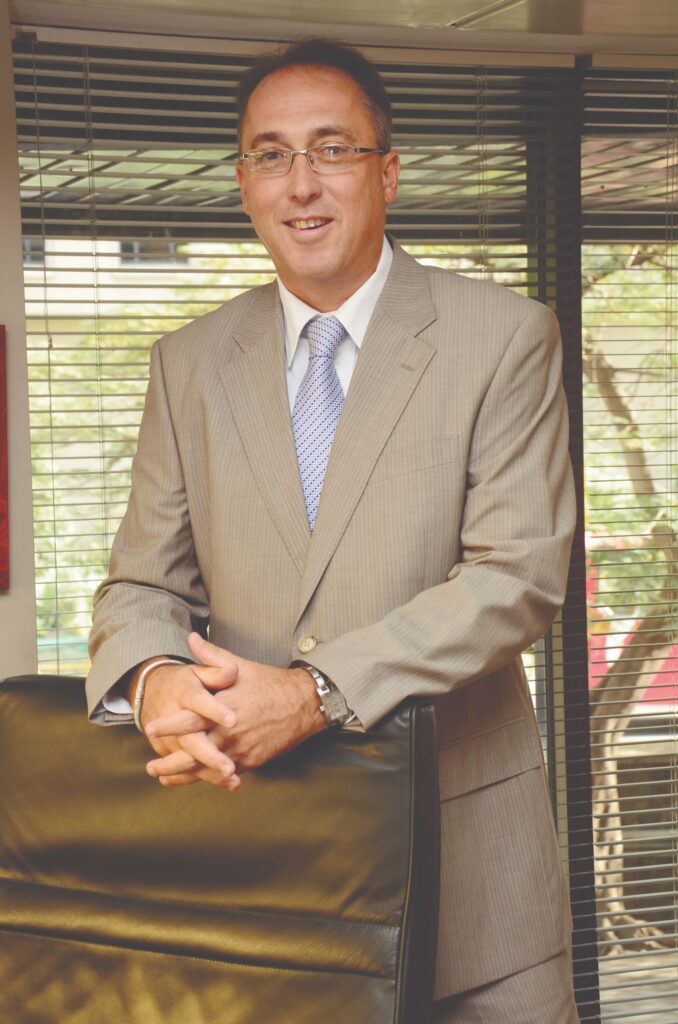
From accountancy to aviation
Born in 1967, Alexandre Fayd’herbe has a BCom (Hons) degree and is a qualified chartered accountant from the South African Institute of Chartered Accountants. He worked with Andersen for seven years in South Africa before joining Rogers Aviation as General Manager – Finance & Administration in 2001. He was appointed Managing Director in October 2006 and then Chief Executive Officer in October 2010.

